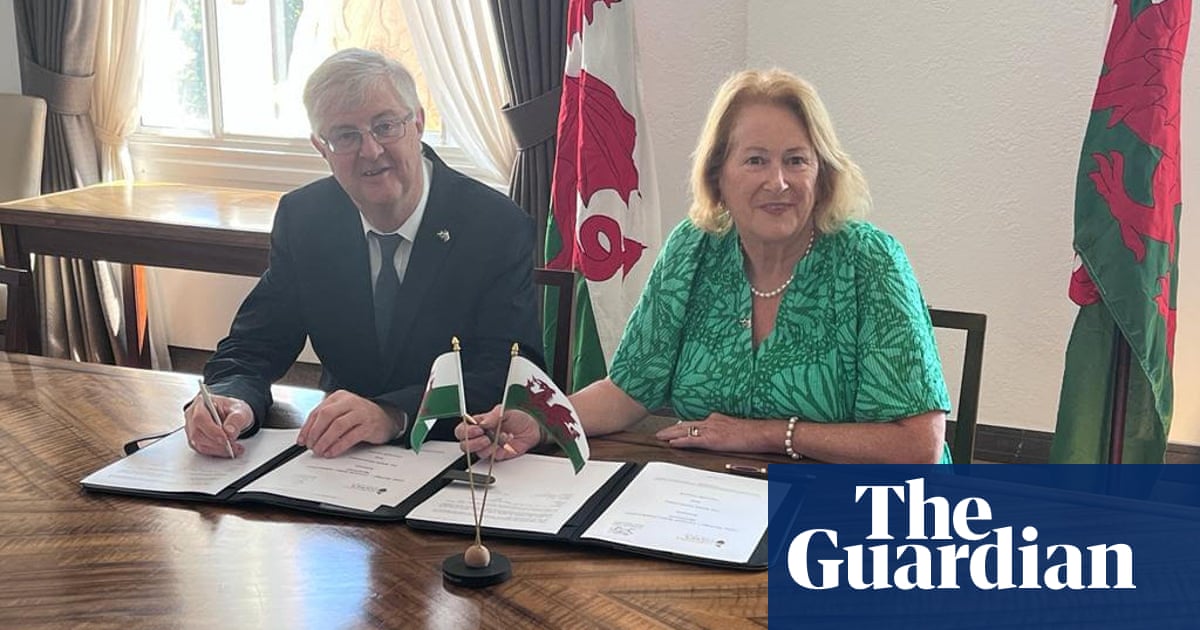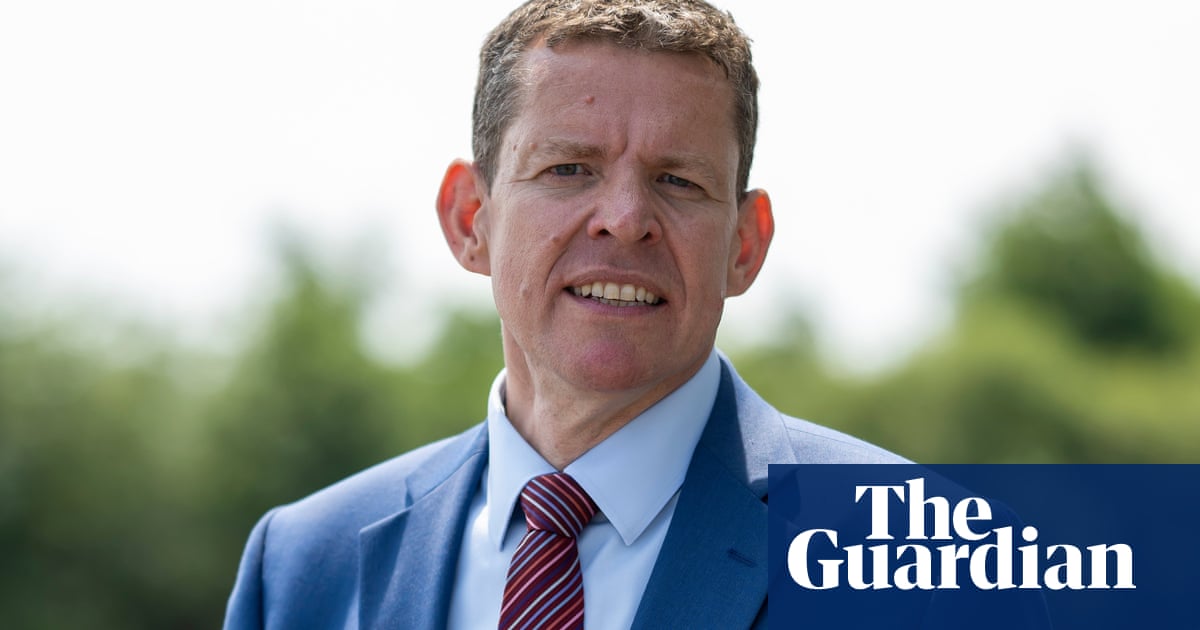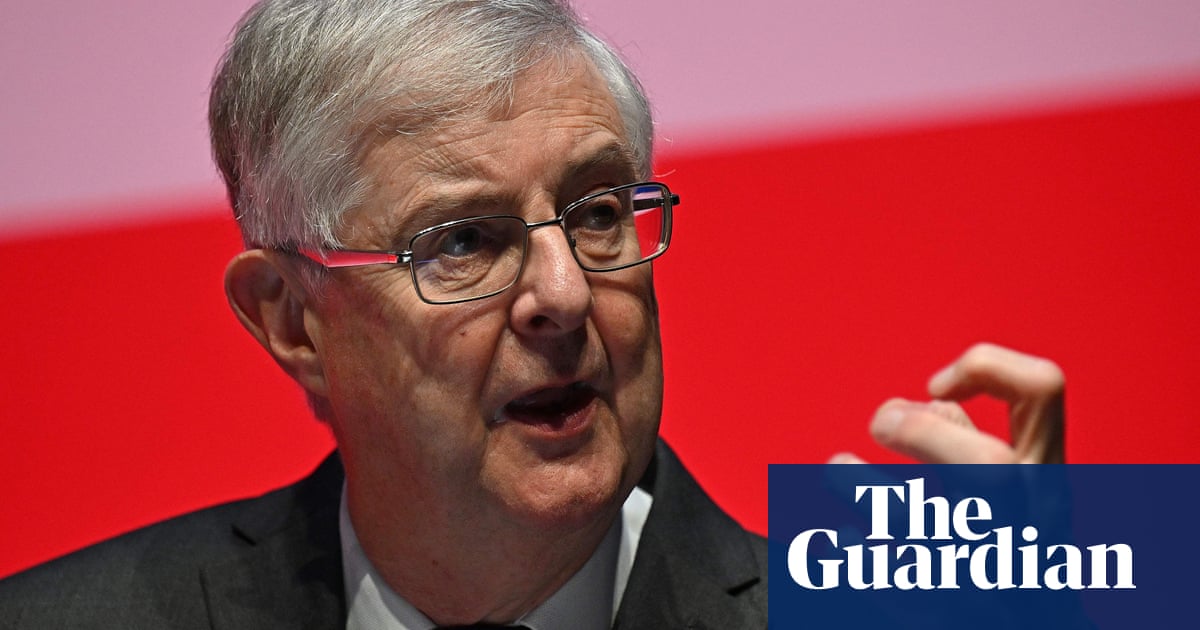
They are separated by choppy waters – and different political ideologies.
But the leaders of Wales and Cornwall have come together to sign an agreement vowing to work together on shared issues, ranging from the crisis of holiday homes to the prospect of cooperating on offshore wind power projects in the Celtic Sea.
Mark Drakeford, the Labour first minister of Wales, and the Conservative leader of Cornwall council, Linda Taylor, put aside their party political differences to meet at Cathays Park in Cardiff to seal the five-year collaboration agreement.
Drakeford said Wales and Cornwall had much – challenges and opportunities – in common. “We share many historical, cultural and linguistic ties with Cornwall, and our economies, landscape and our people have many shared characteristics,” he said. “These commonalities enable us to learn from each other.”
On the opportunities side, Drakeford said they had “the shared resource” of the Celtic Sea. “We both have an interest in making sure we get the most we can from the fact that our geography is suddenly on our side. Here we both are on the western fringe of Europe, where our geography has been against us in many ways for economic development; now suddenly being on the edge is an advantage in terms of wind and marine energy.”
The challenges the two territories share include the second homes crisis, which pushes families and young people out from places favoured by holidaymakers. The Welsh government will share learning from its “radical” campaign to tackle the problem such as changing planning laws and allowing councils to increase taxes on second homes.
Cornwall may also be able to learn much about increasing the number of people who speak Cornish from Wales, which is aiming to have 1 million people speaking Welsh by 2050. On language, Drakeford said: “The three Celtic languages closest together are Welsh, Breton and Cornish. We want to support other branches of the Celtic language.”
Wales already has strong links with Brittany and Drakeford travelled to Paris earlier this year to mark the start of a year-long celebration of connections between Wales and France.
He said the move was not about bypassing Westminster. “It’s not antagonistic to the UK government – it’s much more a positive wish to engage directly with places beyond Wales.”
Taylor said Cornwall was proud of its language but its school programme did not have the reach of Wales’s. While Drakeford is a fluent Welsh speaker, Taylor admitted her Cornish amounted to little more than thank you – meur ras.
The Cornish council leader said she was keen to learn more about Wales’s new planning laws designed to make it harder for houses to be turned into holiday homes. “To me, it would be incredibly important to have those powers,” she said.
Garry Tregidga, a co-director of the institute of Cornish studies at the University of Exeter, said there were many common features between Cornwall and Wales. He cited the visit of the Welsh former prime minister David Lloyd George to Falmouth at the start of the 20th century, when he declared he was visiting “his fellow countrymen” since Cornwall and Wales had the “same Celtic passion for liberty”.
Joanie Willett, the institute’s other co-director, said: “As Cornwall pursues its goal of meaningful devolution to local government, building strong relationships with other governments is going to be incredibly important.”
Dennis Sorondo Salazar, an expert on sub-state diplomacy at Cardiff University’s Wales governance centre, said: “These kinds of agreements can sometimes be a way of bypassing the central government. Wales is increasingly active in this paradiplomatic sphere, in establishing both international and regional links.”












